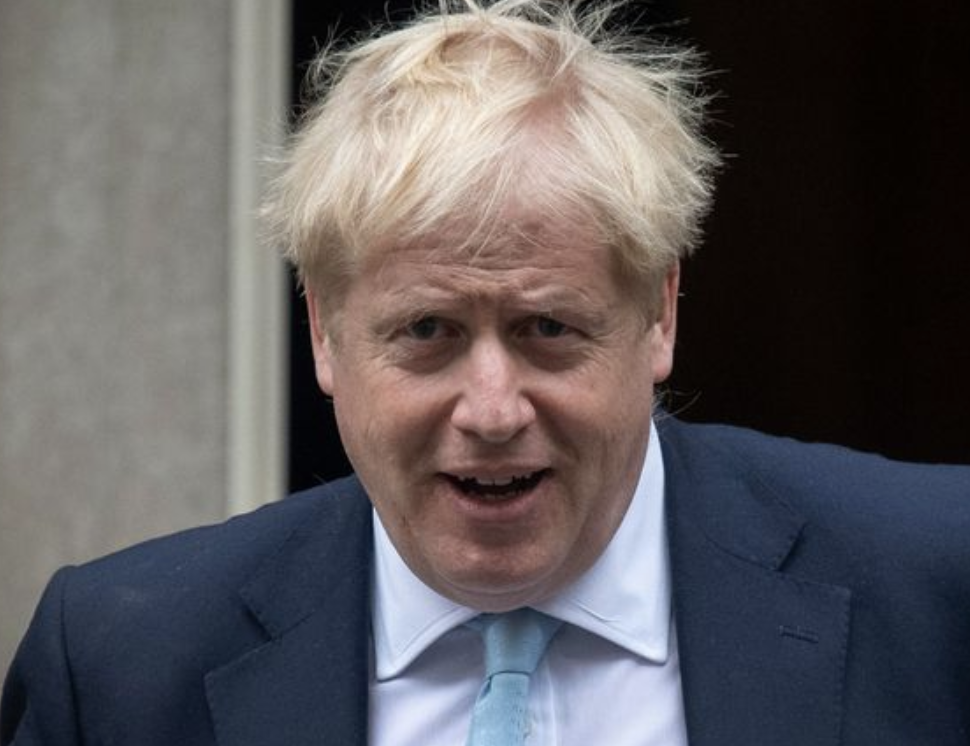Pound Weakens As Brexit Deal Prospects Dim
Reports of a conciliatory meeting with Irish Prime Minister Leo Varadkar help Boris Johnson revive hopes that a Brexit deal might actually get done, now that Johnson had seemingly won over Varadkar, whose increasing clout within the EU27 might help win over enough support to clinch a deal.
The pound rallied to its strongest level in three months on the news. But on Monday, with much of the US away from their desks for the federal Columbus Day holiday, murmurs of dissatisfaction from the EU and fears that Johnson’s ‘Queen’s Speech’ agenda might be voted down, becoming the first such loss for a government in 95 years, rattled British markets, driving both the pound and British stocks lower.
At one point, sterling was down nearly 1% against the dollar, erasing a large swath of its gains from Thursday and Friday, its largest two-day rally in ten years.
Over the weekend, EU Chief Brexit negotiator Michel Barnier, whom Johnson’s government has criticized as being too difficult to work with, told a meeting of envoys on Sunday that the UK’s proposal for breaking the deadlock over the Irish Backstop lacked detail and risked leaving the single market vulnerable to fraud, BBG reports.
Analysts said the market was driven by the waning euphoria surrounding the prospects for a deal.
“After the best two-day rally in 10 years, sterling euphoria as regards the prospects of an imminent deal is wearing off,” said Jeremy Stretch, head of Group-of-10 currency strategy at Canadian Imperial Bank of Commerce. “The prospects of a deal have dimmed from the extremes seen on Friday.”
Another analyst noted that, whatever the outcome, traders should know within a couple of days whether there’s a shot at a deal during this weekend’s EU Council summit, widely seen as the last opportunity to hammer out a detailed agreement.
“We should know today or tomorrow whether it’s going to be possible to have a deal together before the EU Leaders’ Summit at the end of the week,” TD Securities’ strategists including Richard Kelly wrote in a note. “Boris Johnson has a very tough balancing act ahead in trying to keep the Democratic Unionist Party onside, but also come up with something that works for the EU.”
But Johnson will be forced to balance his deal wrangling with ‘the Queens Speech’ early this week. During the grand ceremony, Johnson will unveil his conservative government’s legislative agenda, including 22 pieces of legislation that the FT says have little hope of making it into law.
Unfortunately for the Tories, Johnson lost his working majority last month when 21 moderate MPs were expelled from the Conservative Party for supporting parliamentary efforts to stop a no-deal Brexit, which is one reason some fear the agenda could be voted down in an unprecedented embarrassment for the Johnson government.
But successfully pitching his agenda to the country is seen by insiders as critical to a Tory majority returning in any upcoming snap election, which is looking increasingly likely.
According to the FT, while the speech is supposed to focus on domestic issues, Brexit will still be a major theme, with the Queen expected to say that her government intends to “Get Brexit Done” by the Oct. 31 deadline. The speech will also likely raise the timing of a withdrawal agreement bill, the final step needed to pass any new Brexit deal through Parliament.
The Queen’s Speech, which will open a new session of Parliament, is expected to begin at around 2:30 pm London Time on Monday.
Here’s some more about the formalities surrounding the speech, according to one Twitter user.
There is a lot of pomp and circumstance around the Queen’s Speech- and much of this is tradition, but there is also some important symbolism, particularly around the relationship between the monarch and Parliament
Some particularly interesting/fun things:
— Alice Lilly (@aliceolilly) October 14, 2019
So, for example, Black Road (sent as a messenger to summon MPs to the Lords to hear the Speech) has the door of the Commons slammed in their face and has to bang it several times before they are allowed in- a way of asserting the Commons’ independence
— Alice Lilly (@aliceolilly) October 14, 2019
Later today, after the Speech, the Commons and Lords will give a purely symbolic first reading to two bills (the Outlawries Bill in the Commons and the Select Vestries Bill in the Lords). Neither bill progresses any further nor is intended to ever become law…
— Alice Lilly (@aliceolilly) October 14, 2019
But they have an important symbolic purpose, of asserting Parliament’s ability to consider other matters before turning to the Queen’s Speech- another way of emphasising their independence from the monarch
— Alice Lilly (@aliceolilly) October 14, 2019
My favourite tradition, though is the taking of the parliamentary hostage. To ensure the safe return of the monarch from Parliament, an MP (usually the Vice-Chamberlain, a govt whip) is kept at Buckingham Palace until the Queen returns from Parliament. This is *purely symbolic!*
— Alice Lilly (@aliceolilly) October 14, 2019
And dates back hundreds of years to the, er, more fraught periods in Parliament/monarch relations.
Supposedly the “hostage” is kept well-entertained at the Palace and it’s all perfectly nice- it really is just symbolic these days
— Alice Lilly (@aliceolilly) October 14, 2019
It’s easy to find all of this quite amusing-and to question how all these traditions make Parliament look in the modern world- BUT also worth remembering that these things do have quite important symbolism
— Alice Lilly (@aliceolilly) October 14, 2019
Though deal optimism faded on Monday, at least one major investment bank stood by its projections from last week. Goldman Sachs still sees a 60% chance of a Brexit deal, a 15% of a “no deal” Brexit, and a 25% chance of no Brexit at all.
Tyler Durden
Mon, 10/14/2019 – 06:00
via ZeroHedge News https://ift.tt/2Md2Ctz Tyler Durden
